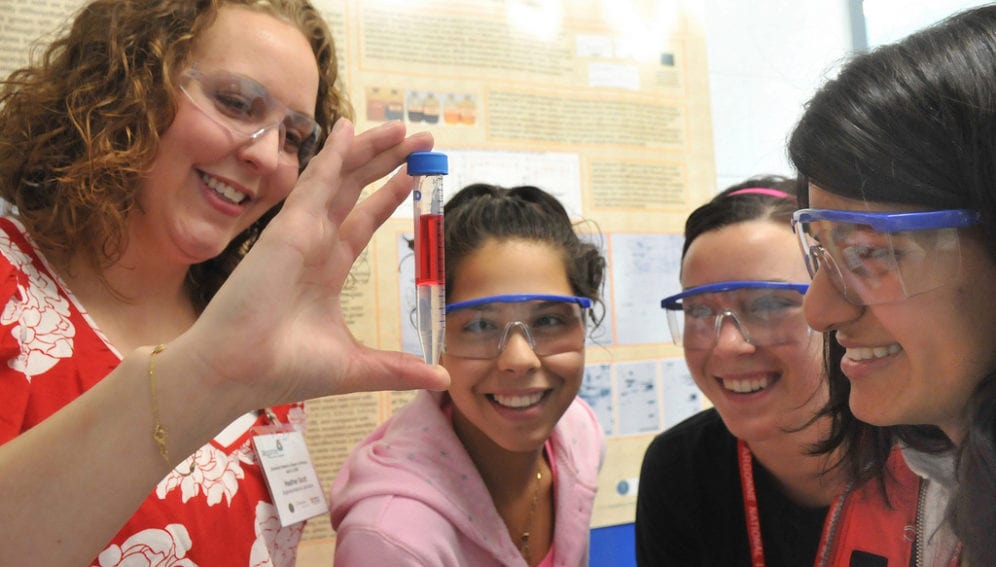Send to a friend
The details you provide on this page will not be used to send unsolicited email, and will not be sold to a 3rd party. See privacy policy.
[GENEVA] To benefit from scientific progress, ordinary people need to take part in scientific research and decision-making themselves, a United States specialist on the human right to science told a UN seminar in Geneva, Switzerland, earlier this month (3-4 October).
Jessica Wyndham from the American Association for the Advancement of Science spoke at the event on the right to benefit from scientific progress and its applications. Her recent work analysing what access to science means may feed into the UN process to define and promote the "human right to science".
Science participation helps create informed, empowered citizens, Wyndham told the seminar.
Participation in science can include taking part in scientific activities as a researcher or a subject. This requires overcoming discrimination based on gender, disabilities or poverty for instance, as well as involving vulnerable populations in the framing of research questions and the dissemination of findings, Wyndham said.
Participation can also include citizens' involvement in science-based decisions. These can be individual choices, such as whether to vaccinate a child, or policy choices, such as government funding priorities. For example, Denmark's government has held several 'consensus conferences' to promote public debate on policy issues such as air pollution and genetic engineering.
“We can spread the idea that there is a very important and natural link between science and human rights.”
Margaret Vitullo, American Sociological Association
In fact, participation runs along a so-called "continuum of access, defined on one end as 'access for the general public' and on the other as 'access for scientists'," according to Wyndham and her co-author Margaret Vitullo, of the American Sociological Association, in a report released at the same seminar. [1]
The continuum encompasses: access to science applications and technology for the general public; access to scientific knowledge, literature and data; and access to samples, materials and subjects for researchers. "A person's position on this continuum can change over time, depending on his or her social context, interests, ability, and training," the authors say.
To enable access across this continuum, Wyndham and Vitullo identify three necessary tools: funding, education and access to information and communications technologies.
They add that the continuum concept could feed into the overdue "general comment" on the right to science, a UN document translating grand aspirations into detailed practical guidelines.
Since the 1948 Universal Declaration of Human Rights, all people have a "right to enjoy the benefits of scientific progress and its applications", but the meaning of this right and the obligations it entails are still open to question.
The UN's existing reporting guidelines on the subject are vague, Wyndham said: they ask about the measures states take to promote access to science, without defining what exactly should be accessed. The continuum description offers a "strong suggestion" of what can be improved and the tools to promote access, she added.
Wyndham and Vitullo built their qualitative analysis based on 16 focus group discussions with US scientists, engineers and health professionals. They hope to extend their study to developing countries in the future.
"We can build on [this study] to spread the idea that there is a very important and natural link between science and human rights," said Vitullo.
References
[1] AAAS Science and Human Rights Coalition Defining the Right to Enjoy the Benefits of Scientific Progress and Its Applications: American Scientists’ Perspectives (AAAS, October 2013)














